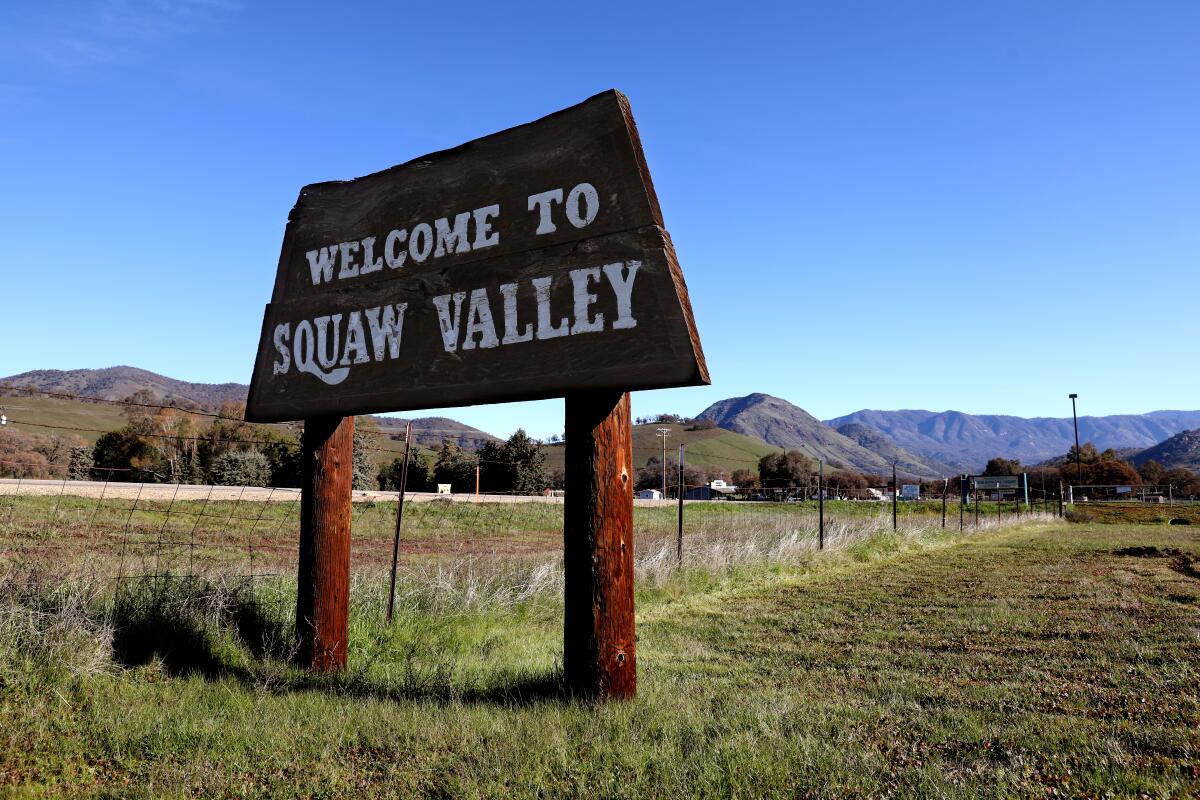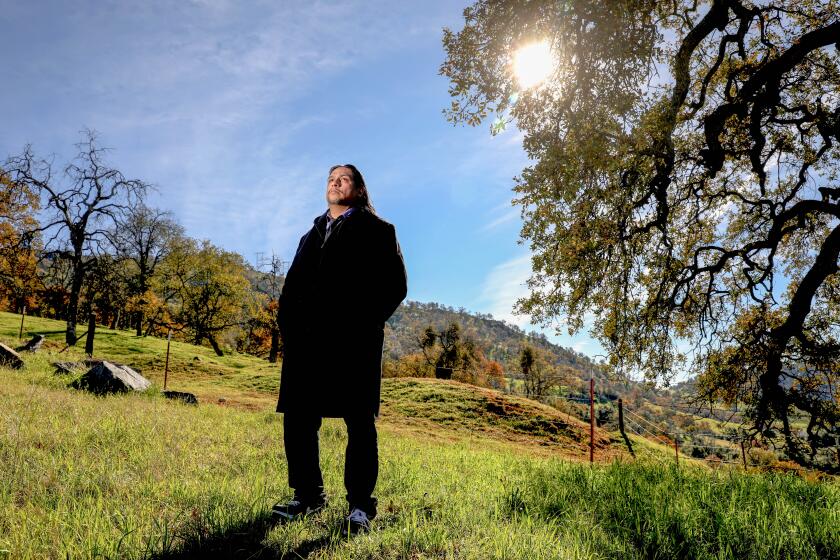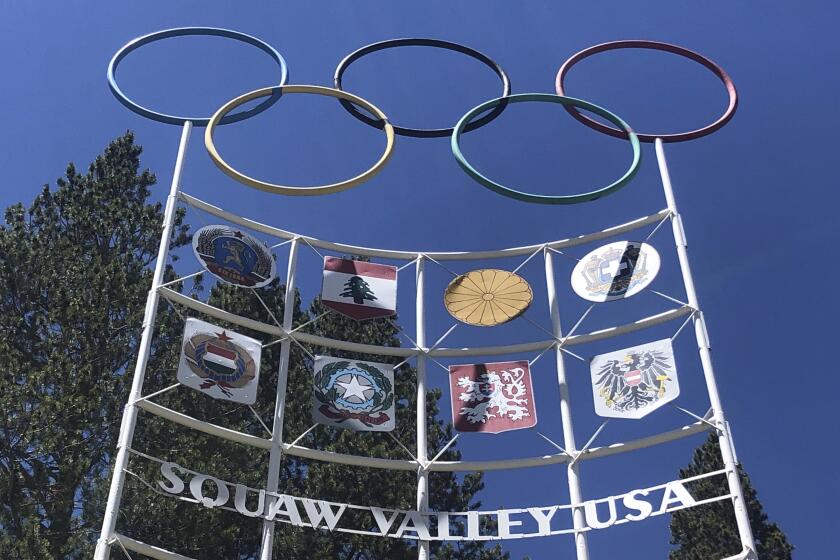California bill would ban the racist term ‘squaw’ in location names

- Share via
Growing up on the San Manuel Indian Reservation in San Bernardino County, Assemblymember James C. Ramos said “squaw” was one of many disparaging terms hurled at his Native American community.
Now Ramos is one of several lawmakers proposing to strip the word —a slur aimed at Indigenous women — from the name of more than 100 places across the state.
“There should be no reason why there shouldn’t be support to change the S-word, that is so degrading to Native American women, in the year 2022,” said Ramos, the first — and currently only — Indigenous member of the state Legislature.
Assembly Bill 2022, introduced by Assemblymembers Ramos (D-Highland) and Cristina Garcia (D-Bell Gardens) last month, would require a state committee to rename places and geographic features bearing the term beginning Jan. 1, 2024. Local leaders would have about six months to suggest a new name under the bill. A procedure would be established to allow residents and tribal representatives to submit recommendations. Signs, interpretive markers or printed material containing the term could not be replaced if the proposed legislation goes into effect.
Fresno County Supervisor Nathan Magsig, who moved to the area from Orange County as a teenager, accuses Roman Rain Tree of being an ‘outsider.’
The bill arrives amid a contentious debate over whether to rename the town of Squaw Valley — located about halfway between Fresno and Kings Canyon National Park — which Ramos said inspired him to bring the bill forward.
Native American-led supporters of the rename campaign for months have butted heads with Fresno County Supervisor Nathan Magsig, who has said there should not be a blanket prohibition on a term.
“What makes something hateful is the context and how the person’s heart is, who’s making those statements,” Magsig told The Times in January. Magsig, the valley’s representative, added that he had not found evidence that the valley’s name was generated in malice.
To think the name isn’t derogatory “is really appalling,” Ramos said. “The voice of California’s first people, shouldn’t that be heard and brought into the discussion of why it should be renamed?”
Some scholars believe “squaw” came from the Algonquin language, which was spoken by many tribes on the East Coast and originally meant “woman.”
But in European languages, the word morphed into something darker. It eventually spread to Western areas where Indigenous tribes spoke languages unrelated to Algonquin.
Suzan Shown Harjo, president of the Morning Star Institute and a leading Native American rights advocate, said “squaw” was popularized by French and British trappers, who conscripted Indigenous women as slave laborers as early as the 1600s.
The Lake Tahoe-area ski resort Squaw Valley is adopting a new name after weighing criticisms that ‘squaw’ is a sexist slur against Indigenous women.
“The term has historically been used as an offensive ethnic, racial and sexist slur, particularly for Indigenous women,” the Department of the Interior said in a news release.
Allowing the slur to live on in place names “perpetuates and allows for violence” today, said Tedde Simon, a racial and economic justice advocate for the ACLU. Simon, who is Native American, pointed to California’s alarmingly high rates of missing and murdered Indigenous women, a disturbing trend echoed across the country.
Montana, Oregon, Maine and Minnesota are among the states that have already banned using the term in place names.
In November, the Secretary of the Interior Deb Haaland, who is Native American, declared the term “squaw” to be derogatory and established a task force to find replacement names for places on federal land. Just over a week ago, the department released a list of candidate replacement names for more than 660 geographic features.
The coalition’s founder said Fresno County leaders have ignored his proposal. He likened the term “squaw” to the “C-word,” aimed specifically at Indigenous women.
Twelve proposals to replace “squaw” are listed by the California Advisory Committee on Geographic Names, including Damalusung Lake for Squaw Lake and Paac Kü̱vü̱hü̱’k for Squaw Tank. Nuum Valley is proposed for Fresno County’s Squaw Valley, though it may be adjusted. Nuum means “the people” in the Western Mono language.
Some places have proactively removed the term. In September, the historic Squaw Valley ski resort in Lake Tahoe changed its name after its owners acknowledged the name was offensive.
Under the proposed California law, new place names should “honor and recognize the tribes, cultures and indigenous languages specific to the geographic region in question,” including drawing on names previously used by tribes.
More to Read
Sign up for Essential California
The most important California stories and recommendations in your inbox every morning.
You may occasionally receive promotional content from the Los Angeles Times.













